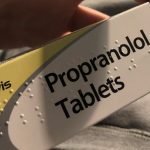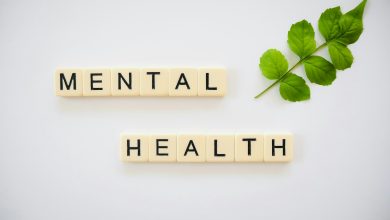Legal Drugs That Make You Feel Good

Hormones are your body’s chemical messengers. Once released by glands into your bloodstream, they act on various organs and tissues to control everything from the way your body functions to how you feel.
One group of hormones are nicknamed the “feel-good hormones” because of the happy and, sometimes, euphoric feelings they produce. They’re also considered neurotransmitters, which means they carry messages across the spaces between nerve cells.
What are the four feel-good hormones?
The “happy hormones” include:
- Dopamine: Known as the “feel-good” hormone, dopamine is a neurotransmitter that’s an important part of your brain’s reward system. It’s associated with pleasurable sensations, along with learning, memory, and more.
- Serotonin: This hormone and neurotransmitter help regulate your mood as well as your sleep, appetite, digestion, learning ability, and memory.
- Oxytocin: Often called the “love hormone,” oxytocin is essential for childbirth, breastfeeding, and strong parent-child bonding. It can also help promote trust, empathy, and bonding in relationships. Levels generally increase with physical affection.
- Endorphins: These hormones are your body’s natural pain reliever, which your body produces in response to stress or discomfort. Levels may also increase when you engage in reward-producing activities such as eating, working out, or having sex.
In this article, we will be discussing the groups of legal drugs that can produce “happy hormones”
Legal Drugs That Make You Feel Good
Vyvamind
This is the closest thing available over-the-counter to Adderall. Although it’s not as effective as Adderall, it does have the same effects, and is legal to take without a prescription. It also contains B vitamins, which are important nutrients that play a key role in many bodily functions, including the production of neurotransmitters that are involved in mood regulation. Specifically, several B vitamins are involved in the production of feel-good hormones such as serotonin and dopamine.
Vitamin B6, for example, is needed for the synthesis of serotonin, a neurotransmitter that is involved in regulating mood, sleep, and appetite. Vitamin B12 and folate are also involved in the production of neurotransmitters such as serotonin and dopamine.
In addition to their role in neurotransmitter production, B vitamins also help to maintain healthy nerve function, which can have a positive impact on mood and energy levels. Vitamin B12 is particularly important for nerve function, and a deficiency in this vitamin can cause fatigue, depression, and other mood-related symptoms.
Ketamine
This drug is legal for medical and therapeutic usage in all 50 states and the District of Columbia. It produces the feel-good effect by strengthening the connections between two brain regions that are involved in the production and regulation of dopamine, which may explain how the drug can alleviate depression. It has been shown to produce rapid and robust antidepressant effects, often within hours of administration.
Ketamine works by blocking the action of the neurotransmitter glutamate, which can affect the release of several different neurotransmitters including dopamine and serotonin. Some studies have suggested that ketamine can increase the release of these neurotransmitters, which are associated with positive mood and feelings of well-being.
However, while ketamine may produce some effects that are similar to the effects of feel-good hormones, it is not actually a hormone and does not produce these hormones directly. Additionally, ketamine can have serious side effects, including dissociation, hallucinations, and addiction. It is only used under medical supervision and is not recommended for use as a method for boosting feel-good hormones naturally.
Nicotine supplements
Nicotine supplements used to help treat addiction to or dependence on smoking cigarettes is another legal drug that can produce feel-good hormones such as dopamine and endorphins. When nicotine is consumed, it activates the brain’s reward system, causing the release of dopamine, a neurotransmitter associated with pleasure and reward. Nicotine can also stimulate the production of endorphins, which are the body’s natural painkillers and can produce a sense of euphoria. However, it is important to note that the use of nicotine can also have negative effects on health and can lead to addiction. Therefore, it is not recommended as a method for boosting feel-good hormones naturally.
Caffeine can produce some effects that are similar to the effects of feel-good hormones such as dopamine, but it does not actually produce these hormones. Instead, caffeine works by blocking the action of a neurotransmitter called adenosine, which can make you feel sleepy and tired. By blocking the action of adenosine, caffeine can increase alertness, improve mood, and provide a burst of energy.
When caffeine is consumed, it can also stimulate the production of adrenaline, a hormone that is associated with the body’s “fight or flight” response. Adrenaline can produce a sense of excitement and can increase heart rate, blood pressure, and breathing rate.
However, it is important to note that the use of caffeine pills or other caffeine supplements can have negative effects on health, including anxiety, insomnia, and increased heart rate and blood pressure. Therefore, it is not recommended to rely on caffeine pills as a method for boosting feel-good hormones naturally. It is generally better to get caffeine from natural sources such as coffee or tea, and to consume it in moderation.
Magnesium is an essential mineral that plays a key role in many bodily functions, including the production of feel-good hormones such as serotonin and dopamine.
Research suggests that magnesium can help to regulate mood and reduce symptoms of depression and anxiety. This may be because magnesium is involved in the production and function of neurotransmitters that are involved in mood regulation, including serotonin and dopamine.
Serotonin is synthesized from the amino acid tryptophan, and magnesium is required as a co-factor for the enzyme that converts tryptophan to serotonin. Similarly, magnesium is involved in the conversion of dopamine to its active form, which can have a positive impact on mood and motivation.
In addition to its role in neurotransmitter production, magnesium also plays a role in regulating the stress response and reducing inflammation in the body, both of which can impact mood and overall well-being.
It is important to note, however, that while magnesium may have positive effects on mood and feel-good hormones, it should not be relied upon as a sole treatment for depression or other mental health conditions. If you are experiencing symptoms of depression or anxiety, it is important to seek the guidance of a doctor or healthcare professional.
How To Boost Feel-Good Hormones Naturally
Feeling happy, energized, and positive can be influenced by various hormones that are naturally produced in the body. The feel-good hormones are responsible for regulating emotions, managing stress levels, and improving overall well-being. While medications and therapies can help improve hormone levels in the body, there are natural ways to boost feel-good hormones that can be easily incorporated into everyday routines.
1. Exercise: One of the most effective ways to boost feel-good hormones naturally is through regular exercise. Exercise triggers the release of endorphins, the body’s natural painkillers, which can produce a sense of euphoria and reduce stress levels. Endorphins can also help combat feelings of anxiety and depression by promoting relaxation and improving mood. Exercise can take many forms, from running and cycling to swimming and dancing. Even low-intensity exercise such as yoga can help stimulate the production of feel-good hormones.
2. Spend Time Outdoors: Spending time outdoors, particularly in natural settings such as parks, beaches or forests, has been shown to have a positive effect on mood and overall well-being. Sunlight exposure can increase the production of vitamin D, which is important for regulating hormone levels in the body. Exposure to green spaces has been linked to lower stress levels and improved mood. Additionally, outdoor activities such as hiking, fishing, or gardening can provide a sense of accomplishment and satisfaction, which can also boost feel-good hormones.
3. Socialize: Human beings are social creatures, and spending time with friends and family can help increase the production of oxytocin, a hormone that helps create feelings of happiness and connection. Oxytocin is known as the “love hormone” because it is released during intimate interactions such as hugging, cuddling, and kissing. Socializing can also help combat feelings of loneliness and isolation, which can contribute to poor mental health. Regular social interactions can help reduce stress levels and improve mood, leading to an overall increase in feel-good hormones.
4. Laugh More: Laughter is often referred to as the best medicine, and for good reason. Laughing has been shown to increase endorphins and decrease stress hormones such as cortisol. Laughter can also increase blood flow and oxygenation to the brain, which can improve mental function and mood. Watching a funny movie, reading a humorous book, or spending time with friends who make you laugh can all help boost feel-good hormones.
5. Get Enough Sleep: Getting enough sleep is important for regulating hormone levels in the body, including those that contribute to mood and overall well-being. Lack of sleep can lead to increased stress levels, decreased immune function, and a decrease in feel-good hormones such as dopamine and serotonin. It is recommended that adults get 7-9 hours of sleep per night for optimal health. To improve sleep quality, try establishing a regular sleep routine, avoiding caffeine and alcohol before bedtime, and keeping electronic devices out of the bedroom.
6. Eat a Balanced Diet: Eating a diet rich in whole foods, including fruits, vegetables, lean proteins, and healthy fats, can help regulate hormone levels and contribute to better overall health. Foods that are high in tryptophan, an amino acid that is converted into serotonin in the brain, can help boost feel-good hormones. Foods such as salmon, nuts, seeds, and dark chocolate are all good sources of tryptophan. Additionally, avoiding processed foods and sugar can help regulate hormone levels and improve mood.
7. Practice Mindfulness: Mindfulness practices, such as meditation, deep breathing, and yoga, can help reduce stress and anxiety levels and increase feelings of well-being. Mindfulness can help promote relaxation, which can trigger the production of feel-good hormones such as endorphins and oxytocin





